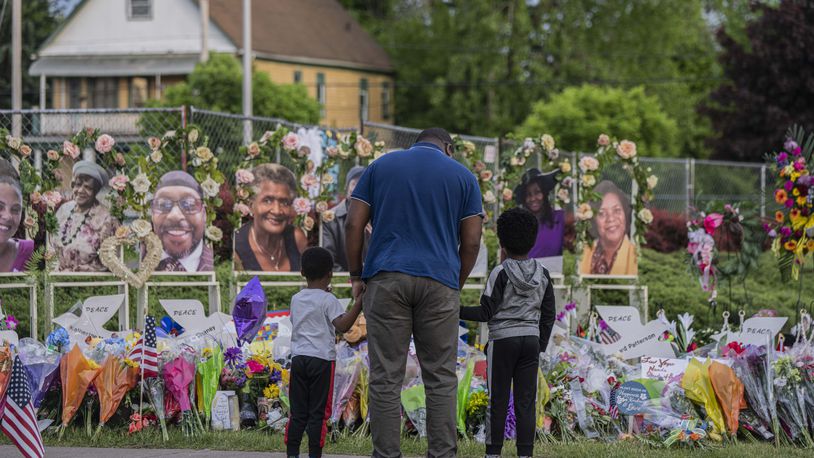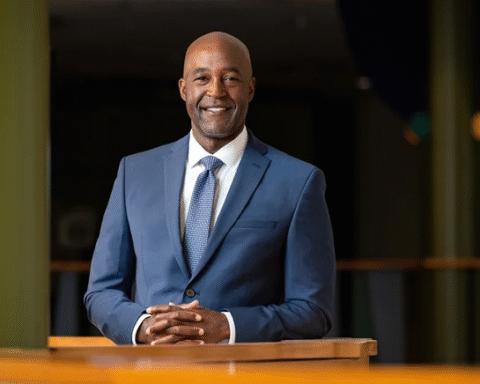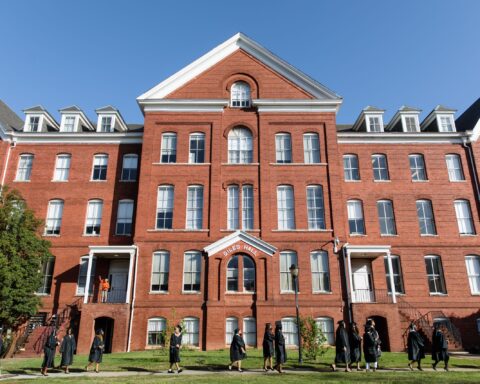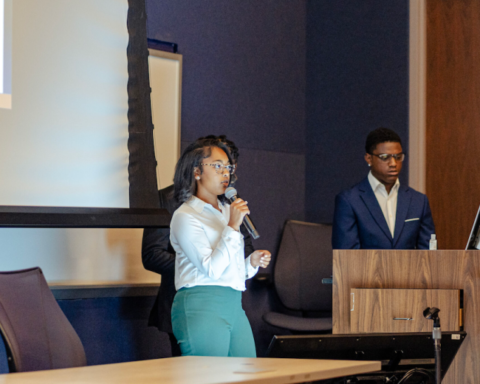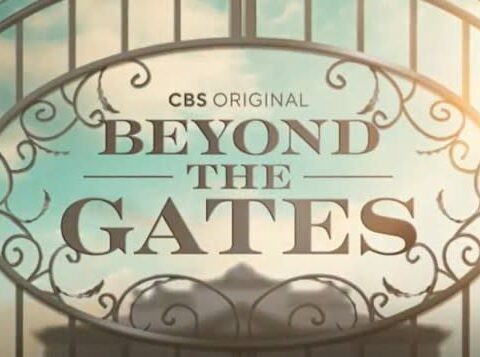By David H. Thomas, Ph.D.
I write hoping that you have begun to enjoy and appreciate the beginning of summer. Unfortunately, I also write with a heaviness of heart. That heaviness comes upon me as I reflect on the days since our graduation and Reunion Weekend. That most glorious and celebratory Morehouse time was sandwiched by violence, first by the senseless killings in Buffalo, New York that targeted a Black community on the Saturday before our Commencement. A few days following Commencement, tragedy struck again in Uvalde, Texas, where little children and their teachers were slaughtered by an intruding shooter. Both tragedies were perpetrated by young men, close in age to many of our students. These young men were filled with resentment and hatred, but also, I believe, mentally ill. Sadly, in the two weeks since Uvalde, more than ten additional mass shootings have occurred in our nation.
Understanding each incident requires a focus on the shooter and his conscious motivations. The result is that each situation is coded as “different,” because the shooters’ targets are different and the shooters share no common characteristics or connections. Those differences allow many of our politicians to act as if there is no societal pattern worthy of or requiring their action, not to mention a willingness by those politicians to take responsibility as elected leaders.
I, however, do see a societal pattern. Our nation is increasingly plagued by the collision of two crises that fuel one another. The first is a moral crisis in which violence has become an accepted aspect of our lives. In a recent congressional hearing, the mother of a slain Uvalde child put it most succinctly. She said that we have become a nation that “values our guns more than we value our children.” It is hard to argue against her point. We have a crisis of morality when, to protect possessions like guns, we devalue life. There is no constitutional right to own a military grade, multi-round, automatic rifle. There is no constitutional right for 18-year-olds or anyone else to buy such weapons without a waiting period or background check.
The second crisis is that of mental health, particularly among our youth whose lives have become more stressful and complicated than any modern generation before them. Living every day to serve 2,200 young men on our campus, I am acutely aware of the mental health challenges of Generation Z. Mind you, others of us are not immune to the stresses of this era of rapid technological advancements that allow individuals to create their own virtual reality with reinforcing feedback loops that fuel a detachment from real life, community, and responsibility. We have responded by creating smaller and smaller self-protective communities and subcultures. The COVID pandemic has only amplified the stressors that challenge our mental health. The sad truth is that our policy makers have failed to see this crisis as a priority. It is easy to get medical attention for a gunshot wound, while in most non-affluent communities, it is becoming almost impossible to find affordable acute mental health care for loved ones in crisis.
Our crisis of morality and our crisis of mental health have become a lethal combination. Each one creates fuels for the other and creates a reality for all of us that makes it naïve to ever assume we are in a safe place— not even in grade schools, grocery stores or houses of worship. Over the last decade, our crises of violence and mental health have shown us that no group of people is safe from senseless bloodshed. This is an American problem, not an urban or rural one, nor one defined by income or ethnicity. Gun violence must be seen as a public health crisis as lethal and destructive for our country as we feared would be the COVID pandemic.
Morehouse College, her graduates, and our community have throughout history stood in the gap as leaders to address the challenges of the day, whether they be related to civil rights, health care, or global peace. We have always brought to our struggles a commitment to non-violence, a spiritually, and a morally-centered value stance, with the aim of moving the world toward Dr. King’s vision of the “Beloved Community.”
So, what do we do in this moment?
We all must choose in each of our spheres of influence to be part of the solution. What mattered in the Civil Rights Movement was not that any one person marched or one lawyer sued for rights guaranteed by the Constitution. What mattered was that a critical mass of people each chose from where they sat to stand and act.
We are called to bring our public servants and elected officials to moral account for their failures to act. We must express this in our votes and activism. We also must take responsibility for those around us who may be suffering and on the edge of doing violence to themselves or others because of mental illness. I was proud of our Student Government Association leadership this year as they made the mental health of their brothers a priority concern for their administration in service to a moral imperative.
My own stance starts with being attentive to the mental health of those in our community. This past year, we saw an increase in the need and demand for mental health services among our students, including intervention to prevent suicide. We know that violent urges can turn inward on oneself as well as outward toward others. Many mass shooters take their own lives as part of their plan of violence and not as an afterthought. At Morehouse, we are moving to be proactive and wholistic in addressing our community’s mental health needs with the vision to become a naturally therapeutic community.
I am supporting a series of policy initiatives without regard for the current vote count in Congress or the state legislature. These include:
- expansion of mental health services in communities and schools;
- mental health coverage mandates in medical insurance policies;
- mandatory background checks, including mental health for weapons purchasers;
- a minimum three-day waiting period to take possession of a purchased weapon;
- a ban on the sale of military grade rifles and automatic weapons such as the AR-15;
- making 21 the required age for legal purchase of a weapon;
- and increasing penalties on those who sell guns in violation of our laws.
While the likelihood that any of these may be enacted soon seems remote, I have a North Star to guide my vote, my activism, and my donations.
I am not suggesting that my commitments are the only morally correct ones available. I do believe, however, that none of us who embrace the Morehouse values and commitments to non-violence and ethical leadership can be neutral.
Let me end by saying that, first and foremost, we must not let our fears lead our actions or paralyze us from action. We must resist the urge to demonize others. Calling our leaders to account for their ethical and moral obligations is not served by demonization of those with whom we disagree. Pulling away into self-protective cocoons of sameness will not make us safe, but it will increase our fears of one another and make those most in need of help even more isolated. The idea that more guns and teachers prepared to shoot it out with deranged perpetrators is a fantasy driven by fear and belief that as a society we have done all we can do. Do we now believe that it is every adult and child for themselves? We must not surrender to our fears in this moment.
Men of Morehouse and the greater Morehouse Community, I wish you a wonderful summer even amid the challenges we face. This moment simply reinforces my belief that the world needs Morehouse today more than ever. We must continue to be a “candle in the dark,” bending the moral arch of the universe toward justice and the “Beloved Community.”
We can never forget that our mission calls for our community to lead and serve. We must be steadfast, honest, and true.

